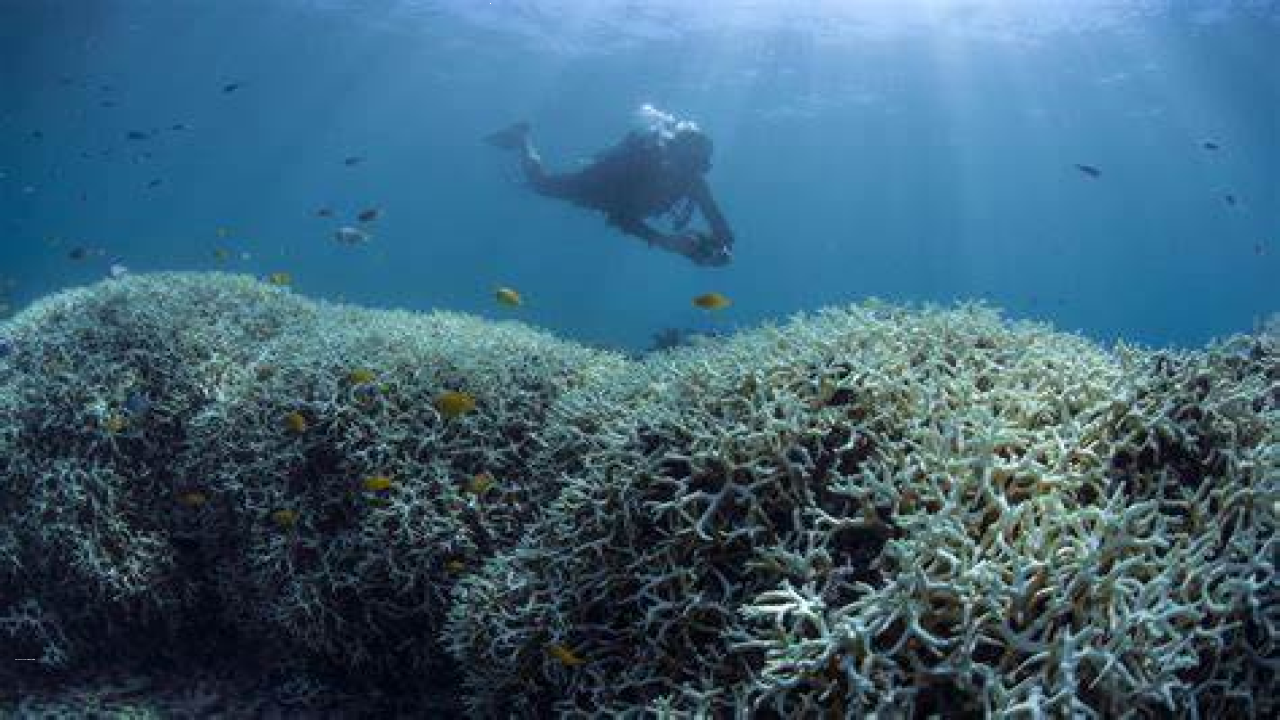Deterioration of Eilat’s Red Sea Coral Reefs
The coral reefs in the Gulf of Eilat/Aqaba are facing a concerning decline, as revealed by the 2022 report of the Israel National Monitoring Program. The report attributes this deterioration to a combination of factors including rising temperatures in the Red Sea, underwater pollution, extreme storms, and disease outbreaks. The Israeli Environmental Protection Ministry emphasizes the need for immediate action to mitigate the impact of these threats on the marine ecosystem.
Development activities, particularly artificial lighting, are a concern for the popular Red Sea resort. Worries also extend to the expansion of Eilat’s desalination plant potentially increasing nitrogen and brine discharge. A severe winter storm in March 2020 led to significant coral reef damage. Recovery began in 2022 after a 1.5% decrease in coral cover in 2021. The Gulf of Eilat’s unique coral reef is struggling to cope with climate change, extreme weather, and local stressors. Environmental Protection Minister Idit Silman stresses responsible actions and science-based policies for preserving this valuable ecosystem.
What factors are contributing to the deterioration of the coral reefs in the Gulf of Eilat/Aqaba?
The coral reefs are facing deterioration due to a combination of factors, including warming temperatures in the Red Sea, underwater pollutants, extreme storms, and disease outbreaks. These stressors collectively impact the ecosystem’s health.
What are the concerns regarding development at the Red Sea resort and the desalination plant expansion?
The report highlights concerns about development, especially artificial lighting, at the Red Sea resort, as it can negatively affect the marine ecosystem. The expansion of Eilat’s desalination plant raises worries about increased discharge of nitrogen and brine, which could further harm the coral reefs.
What impact did the severe winter storm in March 2020 have on the coral reefs?
The storm caused significant damage to the coral reefs by depositing sand, damaging infrastructure, and leaving debris. As a result, there was a loss of living cover ranging from 6% to 22% across different sites.
How has the coral cover changed in recent years, and when did the recovery process begin?
The coral cover experienced a 1.5% decrease in 2021. Recovery began in 2022, signaling the first signs of improvement. This recovery indicates the ecosystem’s potential to rebound if given appropriate conditions.
What makes the Gulf of Eilat/Aqaba unique, and why is its coral reef particularly vulnerable?
The Gulf of Eilat/Aqaba hosts one of the northernmost coral reefs globally. Additionally, it is among the fastest-warming regions, with sea surface temperatures increasing 2.5 times faster than the global average since 1988. This vulnerability stems from the combined effects of local and global stressors.
What actions and policies does the Environmental Protection Ministry propose to address the coral reef’s deterioration?
Environmental Protection Minister Idit Silman emphasizes the need for responsible actions and science-based policies. She urges collaboration among all stakeholders to protect the reef, especially given the compounding challenges posed by climate change, extreme weather, sea pollution, oil spills, and irresponsible development.
Month: Current Affairs - August, 2023
Category: Environment Current Affairs


